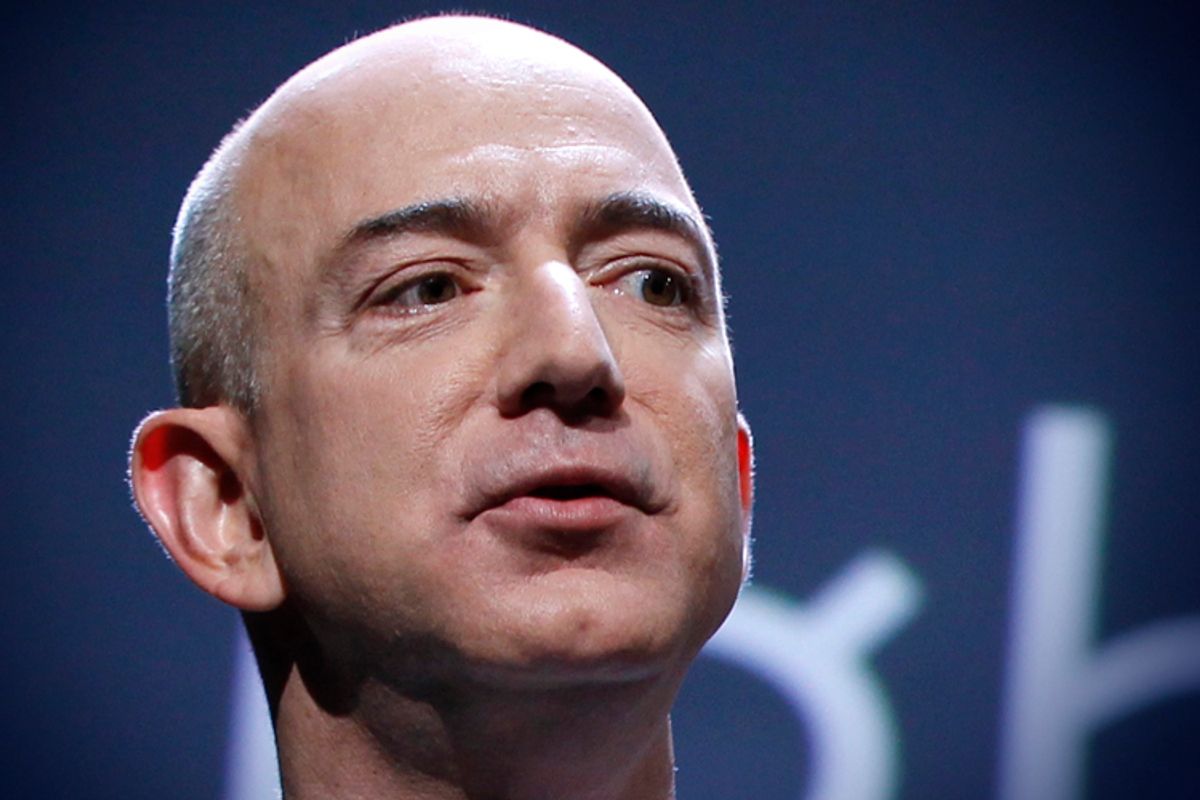The e-book pricing battle between Amazon and publisher Hachette has gotten personal. On Sunday, 909 writers, including Stephen King, Malcolm Gladwell and John Grisham, will run a $104,000 ad in the form of a letter calling out Amazon for making authors collateral damage in its dealings with publishers. On Friday, when the New York Times shared details of the high-profile spat, it was hard not to notice that Amazon, once tight-lipped over the issue, had done a 180 in its public relations strategy. So here's a timeline of Amazon's public statements as they've evolved from coy to combative:
Amazon spokesperson, Fast Company, October 2009:
"Yes, we are working on a Kindle app for Mac."
New York Times, December 2009:
"An Amazon spokesman declined to comment."
Daily Finance, November 201o:
"An Amazon spokesperson has not responded to a request for comment."
Venturebeat, December 2011:
"We emailed an Amazon spokesperson for comment, but they didn't respond."
Craig Pape, director of music for Amazon, press release, 2011:
"Clearly customers are really excited for Lady Gaga’s new album."
Amazon spokesperson Andrew Herdener, New York Times, 2012:
“[The Justice Department lawsuit] is a big win for Kindle owners, and we look forward to being allowed to lower prices on more Kindle books."
Amazon VP of Kindle content Russ Grandinetti, New York Times, April 2012:
"Our mission is to reinvent reading."
Amazon spokesperson, Fortune, July 2012:
"Our mission is to delight our customers by allowing them to serendipitously discover great products."
New York Times, August 2013:
"An Amazon spokesperson declined to comment."
Amazon Book Team, statement for the Amazon forum, May 27, 2014:
“Unfortunately, despite much work from both sides, we have been unable to reach mutually-acceptable agreement on terms. Hachette has operated in good faith and we admire the company and its executives. Nevertheless, the two companies have so far failed to find a solution. Even more unfortunate, though we remain hopeful and are working hard to come to a resolution as soon as possible, we are not optimistic that this will be resolved soon.”
Amazon spokesperson, the Guardian, July 25, 2014:
"[Organizer of the 'authors against Amazon' petition Douglas Preston] says: 'We have many loyal and committed readers. They listen when we speak. That represents power.' He is completely missing the point. It's not readers who should be listening to Mr Preston, but Mr Preston who should be listening to readers. And they have clearly expressed a preference for e-books priced less than $10.
"Even four years ago when readers expressed such a preference, Mr Preston responded by saying publicly, 'The sense of entitlement of the American consumer is absolutely astonishing'. It's pretty clear it's Mr Preston who feels entitled. And what's 'astonishing' is that he thinks readers won't recognise an opportunist who seeks readers' support while actively working against their interests."
Excerpt from letter by VP of Kindle content at Amazon David Naggar, GigaOm, July 8, 2014:
"Our first choice would be to resolve a dispute like this through discussion only. We tried that already. We reached out to Hachette for the first time to discuss terms at the beginning of January for our contract which terminated in March. We heard nothing from them for three full months. We extended the contract into April under existing terms. Still nothing."
Amazon spokesperson, Wall Street Journal, via GigaOm, July 8, 2014, after Hachette described Amazon’s proposal as “suicidal”:
“We call baloney. Hachette is part of a $10 billion global conglomerate. It wouldn’t be ‘suicide.' They can afford it. What they’re really making clear is that they absolutely want their authors caught in the middle of this negotiation because they believe it increases their leverage. All the while, they are stalling and refusing to negotiate, despite the pain caused to their authors. Our offer is sincere. They should take us up on it.”
Spokesperson for Amazon, Publisher's Weekly, July 22, 2014:
"You have to look at the parent company -- Lagardère Group -- rather than just the Hachette division. Lagardère...can afford it, and should stop using their authors as human shields."
Statement from Amazon, quoted by the New York Times, Aug. 7, 2014:
“First, Hachette was willing to break the law to get higher e-book prices, and now they’re determined to keep their own authors in the line of fire in order to achieve that same end.”
New York Times, Aug. 8, 2014:
"Amazon declined to comment."

Shares